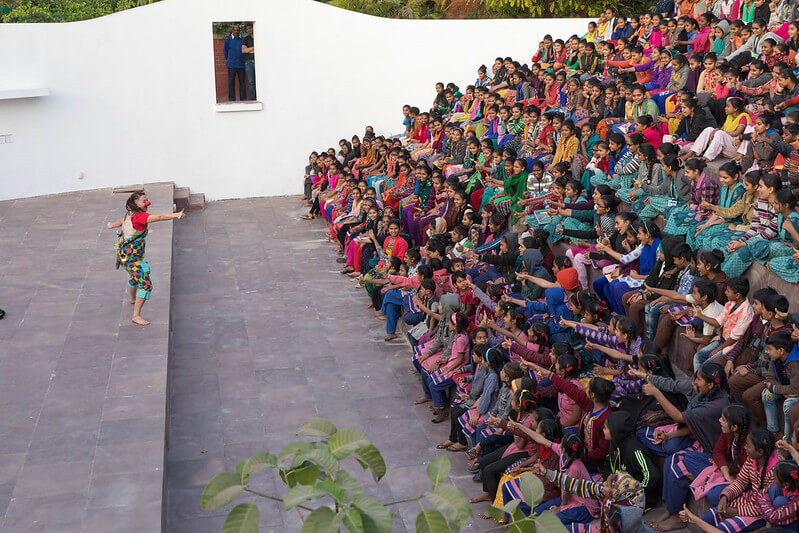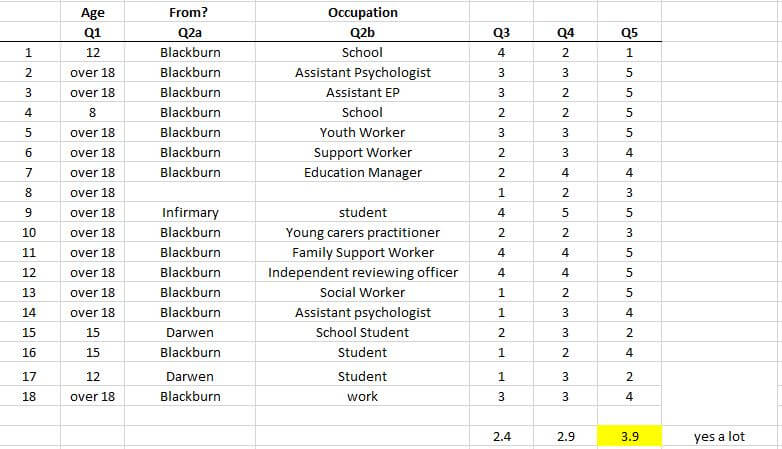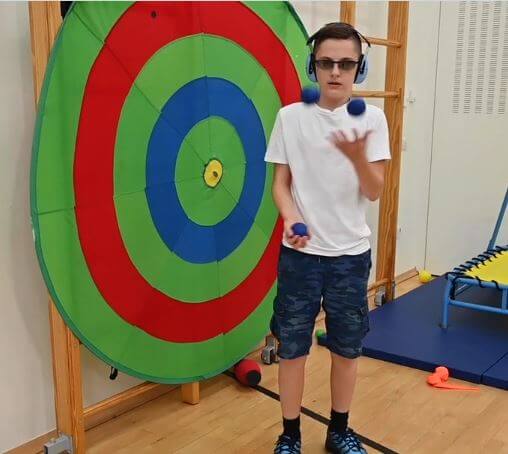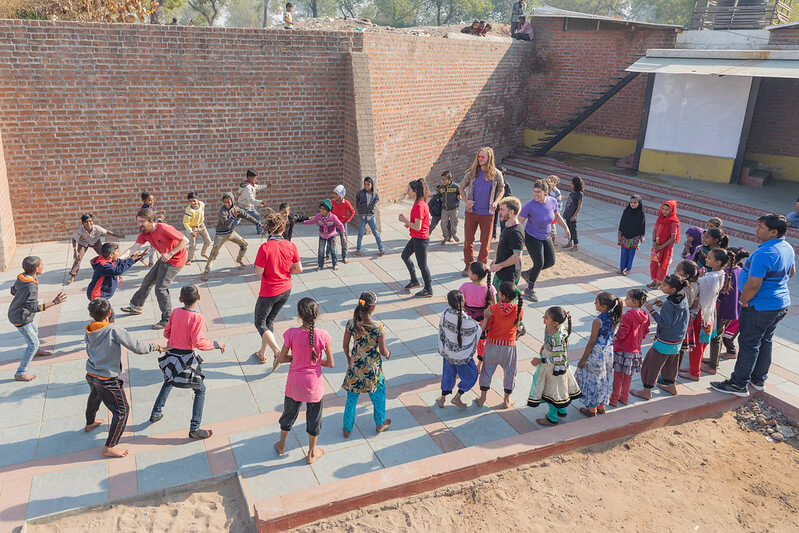The mission of Performers Without Borders (PWB) is to improve the physical and mental wellbeing of disadvantaged young people through teaching circus skills and performing arts. Our skilled and professional circus arts practitioners do this by delivering bespoke Circus Arts Instruction (CAI) workshops in order to engage otherwise marginalised groups. There is a growing body of evidence that shows that CAI can be more inclusive and engaging than traditional physical education. Partaking in a physical activity at a young age has been shown to be a great indicator of future mental and physical health and academic achievement, so our work can be an important early intervention with long lasting and broad ranging benefits for a wide range of vulnerable young people (see our Research page and below for supporting evidence).
Short Video Demonstrating of Our Impact
Extended Circus Arts Instruction (CAI) with a social focus has been shown to have significant benefits and lasting impacts on physical and mental wellbeing for disadvantaged young people across the world, in PWB’s own 12 years of international projects and from many others (eg: Flying Seagulls Project, Circus Eruption, Extraordinary Bodies etc). Please see our Evaluations page for full reports on our India 2010 and Nicaragua 2013 tours.
The impact of our workshops in the UK, was evaluated in our Swiss Cottage Project Report and found that: “…the Adult Helper Questionnaires & Video Interviews & Participant Audio Interviews confirmed that learning circus skills was widely accessible and inclusive and good for the participants physical and psychological wellbeing.” [pg.1].
The Deputy Head of Swiss Cottage also said: “There is a lot of thought behind the activities that you’re presenting… what seemed very playful, actually they’re developing their coordination, hand eye coordination, motor skills, confidence, self-esteem. They’ve done really well.” For more please see our Swiss Cottage video and report.
Beyond a young person’s basic survival needs, having an enjoyable physical activity or hobby has been shown to be an important early mental and physical health intervention. CAI has been shown to: improve self-esteem; lower levels of anxiety and stress; increase confidence and peer acceptance; improve concentration and attention; and increase fitness and strength. Children who do regular physical exercise are also known to be more likely to carry this on into adulthood with obvious and far reaching health benefits[1]. CAI has been shown to be more accessible and gender inclusive[2] than traditional sports, especially in terms of keeping teenage girls engaged and having enough variety that anyone can get involved in some way at all levels[3]. It can also be the gateway into a large new social arena and a fulfilling alternative career. In short, apart from being great fun and a cheap and accessible creative play opportunity[4], CAI can be an important part of a young person’s development with lasting, important and widespread benefits. Please see our Research and Benefits pages for more. [see end of page for footnote links]

OUTPUT: In order to measure our impact we collect statistics on the number of workshops delivered and the the number of participants using Kobo Forms and these are presented in our Annual Report each year.
OUTCOMES: During any project we also evaluate out impact by measuring wellbeing before and after using refined participant questionnaires. We analyse this data and corroberate it with adult helper questionnaires and interviews and also participant interviews. See our Swiss Cottage Report for an example of this.

We are also introducing more quantifiable outcomes to future projects such as the ones listed below:
1) Physical fitness and coordination – measured by the number of circus props and tricks each participant has learnt during the project & tutor reports of co-ordination. TARGET 1: learn basics of 3 circus disciplines (eg. diablo, ball juggling), one basic trick on each.
2) Social interaction – measured by participant questionnaires and from adult helper reports. TARGET 2a: worked with another participant or took part in a social game for 10mins each session; TARGET 2b – 75% of participants to agree or strongly agree that they that they found the workshops helped them be more sociable.
3) Confidence and self-esteem – measured by questionnaire results and adult helper reports. TARGET 3a: taken part in at least one show or “show-and-tell” where they demonstrate a trick to an audience; TARGET 3b – 75% of participants to agree or strongly agree that the workshops helped their confidence/self-esteem,
We plan to triangulate these against anecdotal evidence, interviews and questionnaires from adult helpers/tutors to provide a compelling demonstration of the positive impact we hope to make with our innovative outreach work.

Apart from our proven impact, what is unique about PWB-UK is that we are a national charity working with local partners utilising their own workshop space or hiring a suitable space nearby. Our CAI experts travel to where the young people are and work with them in familiar surroundings. This means we can work flexibly with almost any UK organisation and do not have the significant overhead costs of running and managing a specialised ‘circus’ building. We do have central some running costs, but even then our project managers also work from home so we don’t have any central office overheads either. Meaning a much higher percentage of our income goes to actually delivering CAI and we are not limited to only working with a small number of local kids near our HQ. Our teachers do the travelling and are compensated for these costs within their charity work adjusted fee.

And if that wasn’t enough its just great value for money in terms of Social Return on Investement (SROI) as shown in this academic paper titled: “Forecasting the Social Return on Investment Associated with Children’s Participation in Circus-Arts Training on their Mental Health and Well-Being“:
“Focus group results indicated positive impacts for children’s mental wellbeing, socialisation skills, physical enjoyment and resilience. The SROI analysis found that for every one dollar invested, $7 of social returnmay be generated due to participation in a circus-arts program. Improvement occurred across four key areas concerning children’smental health andwell-being; stress relief, self-esteem, confidence and socialisation. Findings from this study indicate the value of investment in the performing arts, highlighting the importance the circus-arts for children’s mental health.” International Journal of the Sociology of Leisure (2019) 2:163–193

Why is PWB needed?
Mental and physical health problems are on the increase in the youth population, particularly in disadvantaged areas and vulnerable families. The impacts of these circumstances often make it hard for young people to engage with school or youth programmes. Social circus has been shown to be effective in these situations. It can make the difference between an immobile child with poor health and limited social opportunities, to one with a healthy regular activity, which leads them to socialise with their peers more and engage with the wider inclusive and accepting circus community.

[1] Public Health England 2015 “What works in schools and colleges to increase physical activity?” https://assets.publishing.service.gov.uk/government/uploads/system/uploads/attachment_data/file/876242/Guidance_to_increase_physical_activity_among_children_and_young_people_in_schools_and_colleges.pdf – [last accessed April 2020]
[2] Kriellaars, D. J., Cairney, J., Bortoleto, M..C., Kiez, T..M., Dudley, D., & Aubertin, P. (2019). The Impact of Circus Arts Instruction in Physical Education on the Physical Literacy of Children in Grades 4 and 5, Journal of Teaching in Physical Education, 38(2), 162-170. Retrieved Apr 21, 2020, from https://journals.humankinetics.com/view/journals/jtpe/38/2/article-p162.xml
[3] Please see our Swiss Cottage Project video for evidence of this and our Benefits page for more on engaging teenage girls.
[4] See for example – https://www.playengland.org.uk/about-us/why-play-is-important/ [last accessed April 2020]